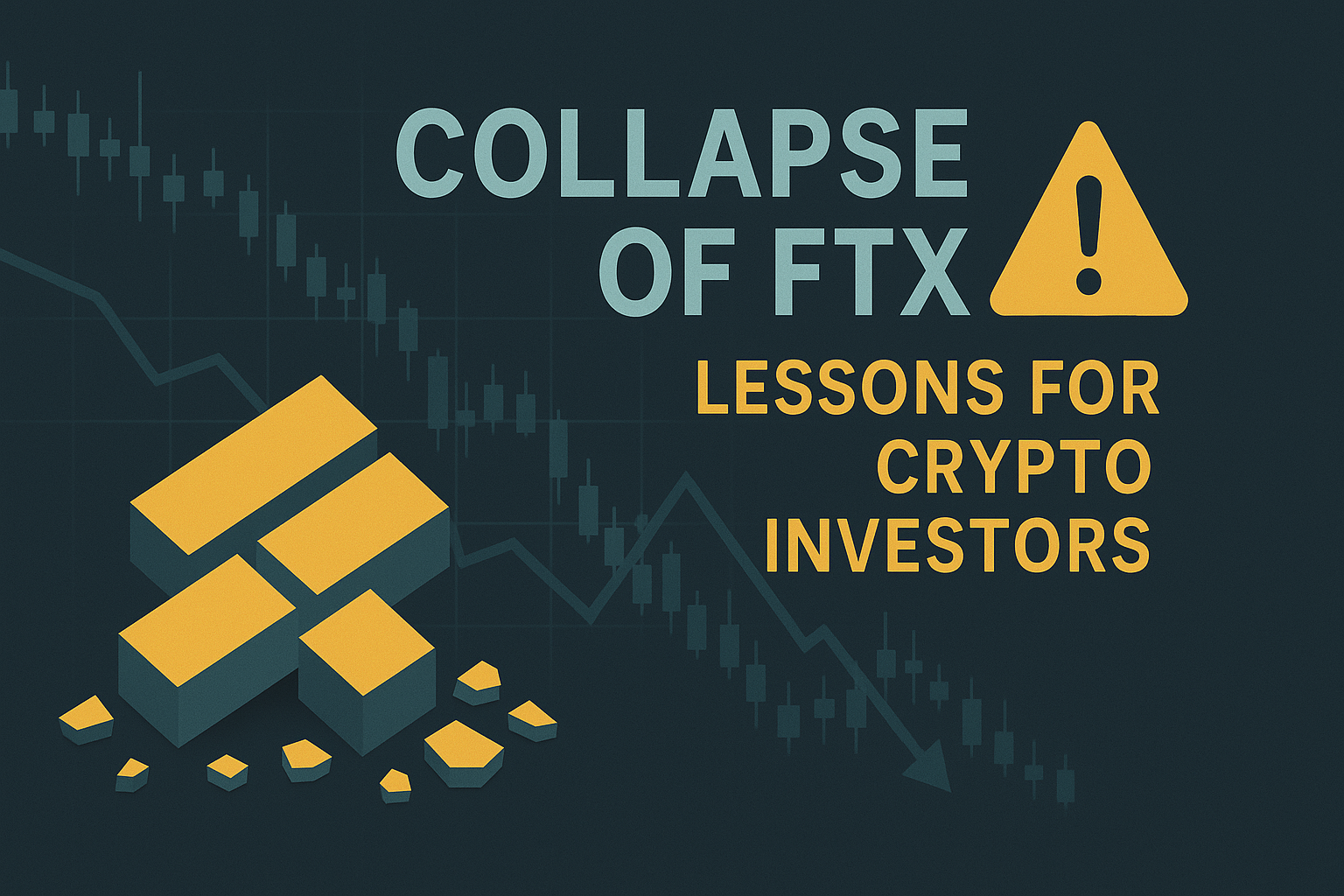
Understanding the FTX Collapse: Key Events
FTX, once hailed as one of the leading cryptocurrency exchanges, experienced a dramatic rise and subsequent fall that reverberated throughout the crypto community. Founded in 2019 by Sam Bankman-Fried, FTX quickly gained traction by offering a wide range of products, including futures and options trading, which attracted a diverse user base.
Its innovative approach and effective marketing strategies propelled FTX into the limelight, positioning it as a formidable player in the rapidly evolving cryptocurrency landscape.
However, this meteoric rise masked underlying vulnerabilities that would eventually lead to its downfall.
A critical moment in the lead-up to the collapse occurred in early 2022, when FTX faced mounting financial pressures exacerbated by a volatile market environment. As prices of leading cryptocurrencies began to decline, FTX’s liquidity started to exhibit signs of strain, prompting concerns from investors regarding the exchange’s stability.
The situation worsened significantly in November 2022, when a report surfaced questioning the financial health of Alameda Research, a trading firm closely linked to FTX. Fear and uncertainty among users resulted in a massive withdrawal surge, leading to an acute liquidity crisis.
In response, FTX sought external assistance to stabilize its operations, but the measures taken were inadequate to restore confidence within the market.
The culmination of these events resulted in FTX’s bankruptcy filing in late November 2022, paving the way for investigations by regulatory bodies and scrutinizing its business practices. These developments underscored several operational missteps, including inadequate risk management, lack of transparency, and over-leveraging, illustrating the complexities and risks associated with cryptocurrency investments.
The FTX collapse serves as a sobering reminder of the challenges within the crypto sector and highlights the necessity for effective governance and regulatory oversight.
The Impact on the Crypto Market
The collapse of FTX has significantly affected the cryptocurrency market, marking a pivotal moment that continues to resonate among investors and stakeholders. Following the announcement of FTX’s insolvency, the cryptocurrency market experienced an immediate downturn, leading to a sharp decline in the prices of leading digital assets.
Bitcoin, Ethereum, and numerous altcoins suffered substantial losses, resulting in a ripple effect throughout the market. This rapid price deterioration instilled heightened uncertainty among investors, prompting many to reassess their positions and strategies.
Investor confidence, a crucial component of market stability, has been notably eroded due to the fallout from FTX. Previously viewed as a stable player in the cryptocurrency exchange landscape, the collapse of FTX has raised questions regarding the security and legitimacy of other crypto platforms. Many investors are now more cautious, reconsidering the risks associated with investing in cryptocurrencies. Consequently, the fear of further collapses has notably led to reduced trading volumes and participation in the market.
Moreover, this incident has had significant ramifications for various related companies and projects. Startups, blockchain ventures, and decentralized finance (DeFi) protocols that relied on collaboration with FTX have faced increased scrutiny and challenges, which may result in a slower pace of innovation and development in the sector. Additionally, investors who were once eager to engage in new projects are now hesitating, affecting fundraising efforts across the industry.
Increased regulatory scrutiny has also emerged as a direct consequence of the FTX collapse. Regulators are now more inclined to impose stricter guidelines on cryptocurrency exchanges and trading platforms to protect investors and prevent future instability. This shift may lead to a more regulated future for cryptocurrency exchanges, ultimately impacting the structure and operations of the market. The long-lasting implications of this event are yet to unfold, but its effects will undoubtedly shape the future landscape of cryptocurrency investment.
Lessons Learned for Crypto Investors
The collapse of FTX serves as a stark reminder of the inherent risks associated with cryptocurrency investments. It underscores the vital importance of conducting thorough research before committing capital to any exchange or project. Investors should delve deeper than the surface to understand the platform’s operational structures, the team behind it, and its regulatory compliance status. This level of diligence helps to avoid pitfalls associated with insufficiently vetted exchanges or those lacking transparency.
One significant lesson from the FTX debacle is the necessity of understanding the risks that accompany cryptocurrencies and their exchanges. Many investors are drawn to the volatile nature of cryptocurrency markets, yet fail to recognize the unique risks tied to specific platforms. Factors such as security protocols, potential management conflicts, and market manipulation can significantly affect investment outcomes. Awareness of these risks enables investors to make informed decisions and potentially avert significant losses.
Recognizing potential signs of mismanagement or fraud is equally crucial. Red flags might include unusually high returns on investment promises, lack of transparency regarding funds, or a hierarchical structure that lacks checks and balances. Such indicators should prompt investors to exercise caution and reassess their involvement with a given platform.
To mitigate risks, adopting a diversified investment strategy is recommended. Diversification across various cryptocurrencies and exchanges can protect against volatility in any single asset or platform. Furthermore, personal vigilance is essential; investors should regularly monitor their investments and remain updated about changing market conditions and regulatory developments.
Finally, understanding the critical role of governance in the cryptocurrency space cannot be overstated. Engaging with platforms that prioritize robust governance practices can help ensure accountability and foster a more secure investment environment. Adopting these lessons can empower crypto investors, allowing them to navigate the complexities of the cryptocurrency market with greater confidence.
The Future of Cryptocurrency: Regaining Trust and Moving Forward
The cryptocurrency industry stands at a critical juncture following the collapse of major platforms such as FTX. As stakeholders reflect on the ramifications of this failure, the focus is shifting towards strategies that will foster a more resilient and trustworthy environment for cryptocurrency investments. Central to this endeavor is the potential for regulatory changes that can introduce greater clarity and security into the sector. Regulators worldwide are actively considering frameworks that aim to protect investors while simultaneously promoting innovation. This balanced approach is vital to prevent future occurrences similar to FTX’s demise.
In parallel, the rise of decentralized finance (DeFi) has emerged as a significant trend in the cryptocurrency landscape. DeFi seeks to eliminate intermediaries in financial transactions, allowing for greater autonomy and potentially increased security for users. However, the DeFi space also presents its own set of challenges, including risks associated with smart contracts and market volatility. As the industry adopts decentralized models, it will be crucial to enhance transparency within these systems, ensuring that users are well-informed and able to make educated decisions.
Moreover, improving transparency and security measures is a non-negotiable requirement for the industry’s regeneration. Stakeholders within the cryptocurrency ecosystem must advocate for best practices, such as rigorous auditing processes and robust risk management strategies. Community-driven initiatives can also play a vital role in rebuilding trust, as collaborative efforts foster a sense of unity and shared responsibility. Investors and developers alike should engage in discussions about ethical practices and prioritize the establishment of trustworthy platforms.
The future of cryptocurrency holds immense promise. By cultivating a culture of accountability and fostering innovative solutions, stakeholders can navigate the complexities of the crypto market. Through strategic, informed engagement, the community can transform challenges into opportunities, paving the way for a more sustainable and trustworthy cryptocurrency environment.
















 Join our Telegram Channel
Join our Telegram Channel